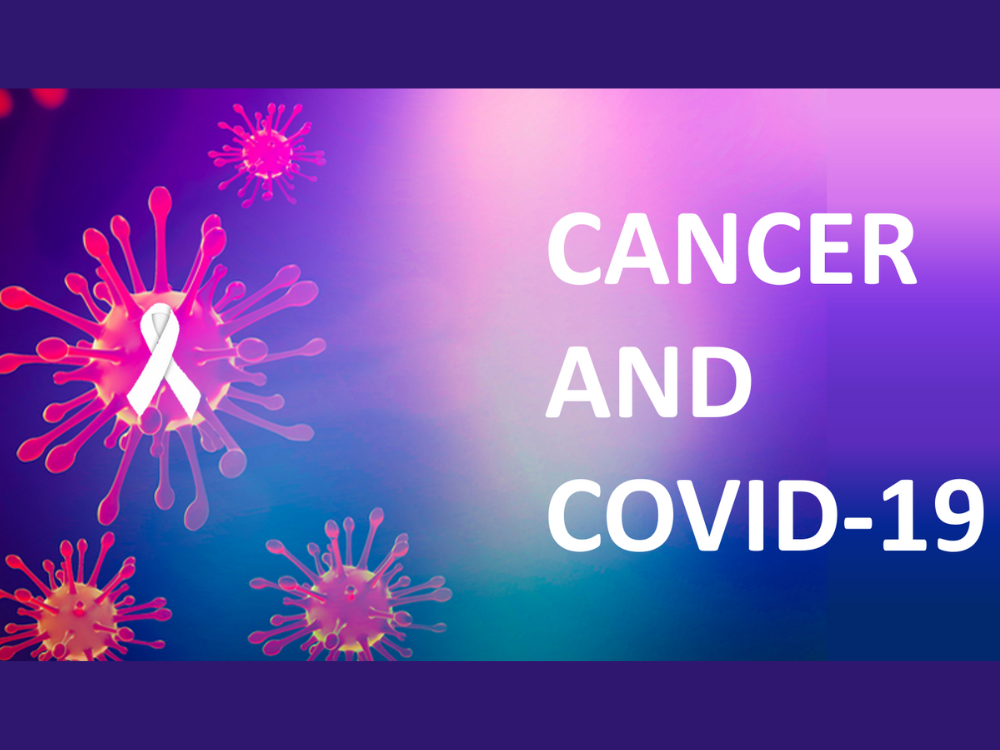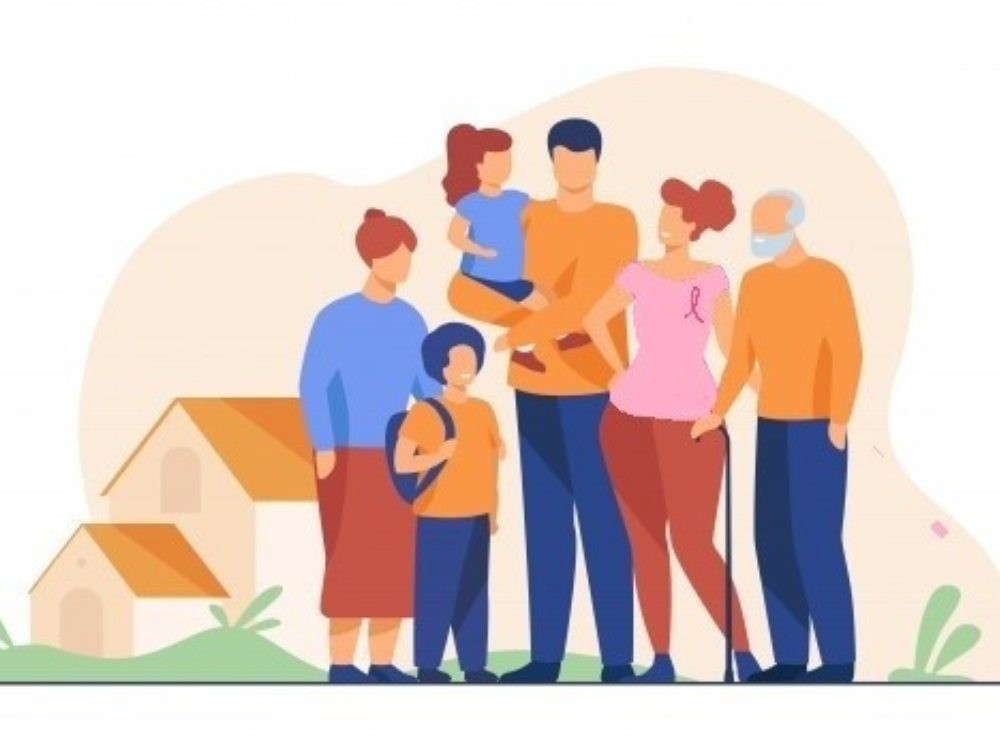Deep Kumar, a senior citizen and a cancer patient based in Faridabad, had been going for his chemotherapy sessions on a regular basis before the lockdown was announced. While Kumar was determined in his fight against cancer however his plans took a tumultuous turn when the treatment came to a halt. The sudden turn of events instilled a sense of fear and he ended up being diagnosed with depression. He consulted a psychiatrist however obtaining the medication suggested by his psychiatrist was also an onerous task because of their limited availability. When his daughter, who is based in Delhi, finally found them, access to those medicines was still uphill for Kumar because of the sealed borders owing to the lockdown.
Deep, is one among a pool of several cancer battling patients, who is struggling due to the coronavirus pandemic. As per data by Indian Council of Medical Research (ICMR)[1], in the period of lockdown 3,00,000 new cancer cases were to be diagnosed, majority of which has not happened due to restrictive measures to contain the coronavirus. In a country like India, where 60-70 per cent cancer cases are anyway diagnosed in later stages, this impact of pandemic, will lead to further late diagnosis, eventually impacting the outcome of the treatment.
While the government struggles to control the pandemic, its restrictive measures have resulted in limited access to proper medical care for cancer patients. Chemotherapy sessions, scans, transplants and surgeries have been kept on hold thus exposing cancer patients to higher risks.
According to Dr. Abhishekh Shankar, senior oncologist at AIIMS, Delhi only 30% of cancer patients come from urban areas. The remaining 70% have to travel for their treatment - which they have been unable to do due to the pandemic. A similar dip is reflected in private hospitals which are struggling because of the high burden on healthcare workers. Hospitals, as a precautionary step, are curtailing their healthcare force. Many hospitals are working at 30-40% capacity, with staff coming in shifts, to minimise the risk of COVID-19 transmission. Limited availability of human resources again is posing up as a huge challenge.
As per Arun Gupta, a cancer patient himself and founder of NGO Win Over Cancer, immunity of patients undergoing chemotherapy is compromised, their body is weak and they already face a lot of issues. Chemo itself has a lot of side-effects and if a patient gets infected with COVID-19, it can be a life threatening condition.
Similarly for radiation therapy, where patients have to come 5-6 times a week for 7-12 weeks, depending upon the situation, as they have to get out of their house frequently and come to hospitals, which itself is a hotspot zone for such risks, this makes them highly vulnerable to catch COVID-19.
Therefore, even if the patient can access medical facilities physically, they are not able to literally. On one hand, cancer patients are scared of contacting the virus in hospitals, so they forgo their treatments, on other hand, hospitals have been forced to cancel appointments, as a majority of their healthcare staff has shifted to other wards to assist in COVID-19 emergencies.
Supply chain has also been disrupted due to lockdown. Certain medicines are not able to reach the hospitals, making the institutions helpless and eventually delaying the treatment. In some oncology departments, cancer services have been prioritised according to their urgency - giving high priority to patients receiving treatment for active disease while postponing follow-up visits.
As per guidelines issued by Ministry of Health and Family Welfare and AIIMS Delhi, all non-essential elective procedures/surgeries are to be postponed and only emergency/life-saving surgeries may be taken up in various operation theatres[2]. As a result of this guideline, surgery count has been reduced to below 10% . This step of the Minisitry is turning to be counter-productive.
Shivam Vatsal, an onco-surgeon, states that surgery is the most critical part.“A patient came to me just 2-3 days prior to lockdown was announced. Being an elderly patient, I recommended him to come after 15-20 days. Neither did I, nor did the caregiver, wanted to take any risk. As the lockdown happened and its first phase was over, the patient came with the disease that had spread so extensively, that surgery was no more an option now. The patient is now undergoing chemotherapy. Such incidents can be seen. Before the lockdown, patients were operable, especially the ones who came at stage 1 or stage 2 of the disease, but after the lockdown, disease might have progressed so that surgery might not be an option anymore. This will impact the outcome of their treatment significantly. Had their treatment started yet, they might have been cured till now, but now their disease might become metastatic.”.
A lot of patients have comorbidities, i.e. they are additionally suffering from other serious conditions like diabetes or hypertension. Due to the lack of treatment, their condition is deteriorating even further. Rahul Bhargava, a hemato-oncologist, observes that cancer is not stopping but its treatment has come to a halt. “The reparations would definitely be negative, but no one can really measure the outcome,” he says.
As evidently visible in Deep Kumar’s case, the mental health of cancer survivors and patients has gone for a toss. The explosion of information - verified or unverified - has taken a toll on their mental health thus making them more vulnerable and leaving a huge psychological impact on their minds.
Cancer survivors stand at a higher risk of being affected by the virus in comparison to healthy people. This is pertinent in cancer survivors having other comorbidities like diabetes and hypertension which makes them more vulnerable to the infection. All these factors accumulate and add to the psychological distress of the patients and survivors.
Lifting of lockdown will not ease things for cancer patients. As told by Dr Prashant Mehta, hemato-oncologist and Bone Marrow Transplant specialist, due to the delays in their treatment and follow-up appointments, once the lockdown is over, overcrowding at hospitals is bound to be expected. Hospitals and healthcare workers need to prepare themselves in advance for the surge in the visits. Making provisions for systematic social distancing, making arrangements to make masks mandatory, working for extra hours and ensuring minimum risk of transmission of COVID-19 in hospitals are a few measures which the hospitals need to take.
As Arun further shared, unemployment likely to be caused due to expected recession post lockdown will further add up to lack of funds for treatment of patients adding to their pile of woes. Since all the funds are being diverted to tackle COVID-19, provision of support to under-privileged cancer patients via funding through social schemes, corporate social responsibility and not-for-profits seem to be difficult in the future. Hence, making the treatment unaffordable for many and leaving them in a conundrum. It is like a time bomb, which will explode, once the lockdown is lifted completely. The impact of this bomb can be felt already, though only time will tell its severity.
[1] https://www.dailypioneer.com/2018/india/over-17-lakh-new-cancer-cases-in-india-by-2020-icmr.html
[2] https://www.indiatoday.in/india/story/coronavirus-in-india-aiims-to-perform-only-emergency-surgeries-for-now-1658067-2020-03-21
By- Akriti Gupta
Special Mention- Sebi, Anjali, Kalista




